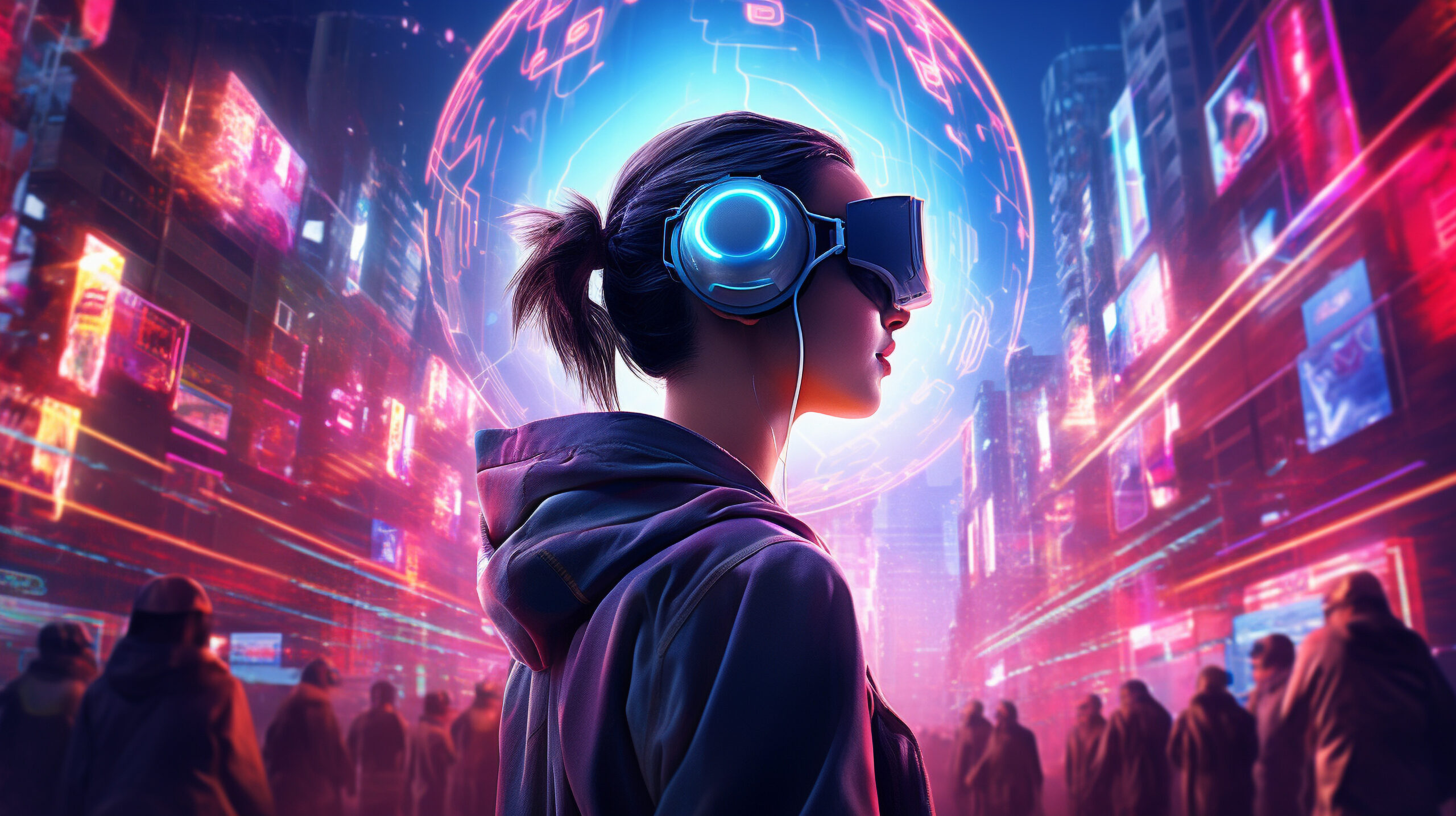The gaming industry has seen a revolutionary transformation over the past decade, and 2025 marks a new pinnacle in this evolution with Artificial Intelligence (AI) taking centre stage. From smarter non-player characters (NPCs) that react dynamically to player behavior to sprawling, procedurally generated worlds that promise infinite exploration, AI is reshaping the way we play and experience video games.
This article explores the latest trends in AI-driven gaming, highlighting how innovations in AI create more immersive and personalized experiences. It also presents gamer opinions and ratings from the US and UK, examining how AI is changing gameplay, storytelling, and world-building in 2025.
Smarter NPCs: Enhancing Realism and Challenge
One of the most noticeable advancements AI has brought to gaming is the development of smarter NPCs. These characters no longer follow predictable scripts but instead adapt to player strategies, emotions, and choices in real-time.
- AI-driven NPCs in titles like Elden Ring 2025 and CyberQuest utilize machine learning algorithms to learn from player behavior, enabling more natural interactions and challenging combat scenarios. UK gamers have rated NPC AI in these games an average of 4.6/5, praising their unpredictability and depth.
- In the US, Star Realms: AI Reborn features NPC factions with advanced decision-making capabilities, resulting in dynamic storylines that evolve with player choices. US gamers give it a 4.7/5 rating, noting that smarter NPCs significantly enhance replayability.
The technology underpinning these AI NPCs includes reinforcement learning and natural language processing, allowing characters to respond convincingly to player dialogue, tactics, and environmental changes.
Procedural Worlds: Infinite Exploration and Creativity
Procedural generation, powered by AI, is another key innovation transforming gaming landscapes. Instead of hand-crafting every element, developers use AI to generate expansive worlds with unique geography, ecosystems, and quests every time a player starts a game.
- Galactic Frontier 3, a top-rated open-world space exploration game in both the US and UK, uses procedural AI algorithms to create star systems, planets, and missions that never repeat. UK players rate its procedural world-building 4.8/5, calling it “limitless adventure.”
- Similarly, Mystic Realms VR leverages AI to craft immersive fantasy environments that change with player interaction, scoring a 4.7/5 from US gamers who appreciate the ever-evolving landscapes and narrative twists.
AI-driven procedural generation not only increases game longevity but also fosters creativity by offering players personalized and unique experiences, making every playthrough different and engaging.
Personalized Gameplay: AI Tailored to Player Preferences
Modern AI systems analyze player data to customize gaming experiences. From difficulty settings that adapt dynamically to personalized quest lines, AI ensures games are more accessible and engaging.
- The Adaptive AI system in Quantum Shadows monitors player skill and adjusts enemy behavior and puzzle complexity accordingly. UK gamers give this feature a 4.5/5 for enhancing enjoyment without frustration.
- US players praise NeoCity Chronicles for its AI-driven narrative that shapes story arcs based on player choices and moral decisions, with a user rating of 4.6/5 highlighting the personalized storytelling depth.
This trend enhances inclusivity and immersion, making games appealing to a broader audience, from casual players to hardcore enthusiasts.
AI and Multiplayer Gaming: Smarter Bots and Matchmaking
AI also enhances multiplayer gaming by improving bots and matchmaking systems:
- Smarter AI bots in games like BattleZone Omega simulate human-like tactics and teamwork, offering players challenging practice partners and filling in for missing players in online matches. UK reviewers rate these bots 4.4/5 for realism and responsiveness.
- AI-driven matchmaking algorithms consider player skill, behavior, and preferences to create balanced and fair matches, with US gamers giving matchmaking systems in games like Arena Royale 2025 a 4.7/5 rating for improving competitive fairness.
The result is a more enjoyable and competitive multiplayer experience that fosters long-term player engagement.
Challenges and Ethical Considerations
Despite its benefits, AI in gaming presents challenges:
- Over-personalization can limit exposure to new playstyles or narratives, potentially reducing diversity in gaming experiences.
- Data privacy concerns arise from AI’s extensive player data collection for personalization. Both UK and US gamers have voiced concerns, with surveys showing 38% of UK and 42% of US players worried about data security in AI-powered games.
- Bias in AI algorithms can impact NPC behavior or matchmaking fairness, requiring ongoing developer vigilance.
Addressing these concerns is crucial for sustainable AI adoption in gaming, requiring transparency and ethical AI design principles.
Comparison Table: Top AI-Powered Games of 2025
| Game Title | Key AI Features | US Rating (out of 5) | UK Rating (out of 5) | Review Highlights |
| Elden Ring 2025 | Adaptive NPC AI, dynamic combat | 4.6 | 4.6 | “Unpredictable enemies that react to player tactics.” |
| CyberQuest | Smart NPC behavior, evolving dialogue | 4.5 | 4.7 | “Immersive characters that feel truly alive.” |
| Star Realms: AI Reborn | AI-driven factions, branching storylines | 4.7 | 4.5 | “Replayability enhanced by evolving narratives.” |
| Galactic Frontier 3 | Procedural universe generation | 4.7 | 4.8 | “Infinite exploration with unique star systems.” |
| Mystic Realms VR | Procedural environments, AI interaction | 4.7 | 4.6 | “Every environment adapts to player actions.” |
| Quantum Shadows | Adaptive difficulty, AI puzzle design | 4.5 | 4.5 | “Perfect balance between challenge and fun.” |
| NeoCity Chronicles | AI narrative personalization | 4.6 | 4.4 | “Storylines that truly reflect player choices.” |
| BattleZone Omega | Advanced AI bots for multiplayer | 4.4 | 4.4 | “Realistic and challenging AI teammates and opponents.” |
| Arena Royale 2025 | AI matchmaking for balanced play | 4.7 | 4.5 | “Competitive fairness has never been better.” |
Reviews and Ratings: What US and UK Gamers Say
UK Gamers
- Oliver M., London: “The smarter NPCs in CyberQuest make each encounter feel fresh and alive. AI-driven behavior makes the game world much more believable.” — 4.7/5
- Sophie L., Manchester: “Procedural worlds in Galactic Frontier 3 offer endless exploration. Every game feels like a new adventure.” — 4.8/5
US Gamers
- Jason R., New York: “AI matchmaking in Arena Royale 2025 keeps games competitive and fair. It’s a huge improvement over older systems.” — 4.6/5
- Emily S., San Francisco: “The AI narrative in NeoCity Chronicles adapts beautifully to player choices, making each playthrough unique.” — 4.7/5
Final Thoughts: AI’s Immersive Revolution in Gaming
AI is revolutionizing gaming in 2025 by creating smarter NPCs and expansive procedural worlds that deliver deeply immersive and personalized experiences. As AI continues to evolve, it empowers developers to craft games that adapt seamlessly to individual players’ styles, enhancing engagement, replayability, and creativity.
Reviews and ratings from both UK and US gamers reflect a strong appreciation for AI’s ability to elevate gameplay realism and world-building. However, the industry must remain vigilant about ethical challenges, including data privacy and algorithmic fairness, to maintain player trust.
Ultimately, AI in gaming represents the fusion of technology and creativity, opening new horizons for players and developers alike. With smarter AI, the future of gaming promises not just entertainment but transformative experiences that immerse players in worlds limited only by imagination.





















